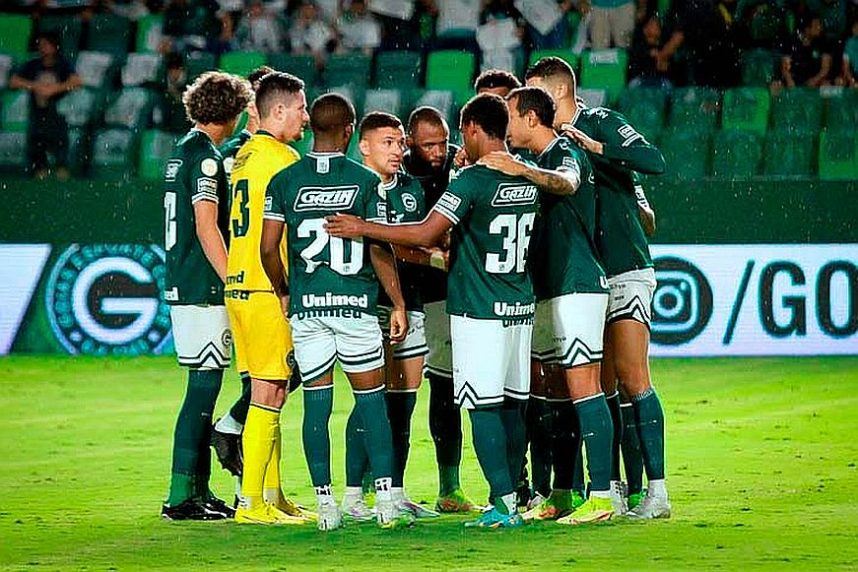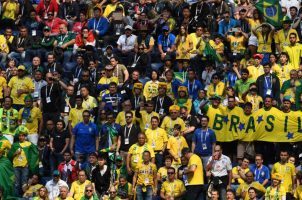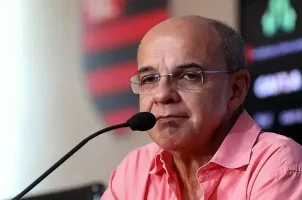‘Maximum Penalty’ Match-Fixing Investigation in Brazil Enters New Phase
Posted on: November 29, 2023, 08:27h.
Last updated on: November 29, 2023, 09:59h.
Brazil’s Public Ministry of Goiás (MP-GO) has initiated the third phase of Operation Maximum Penalty to combat match-fixing in soccer. On Tuesday, search and seizure warrants were executed in eight cities across five states as part of an investigation into seven matches.

The Special Action Group to Combat Organized Crime (Gaeco, for its Portuguese acronym) spearheaded the operation, receiving support from a number of government agencies. Among these are the Institutional Security and Intelligence Coordination (CSI), the Military Police of Goiás, the Cyber Gaeco of the Public Ministry of São Paulo, and the Gaecos of the States of Mato Grosso do Sul, Paraíba, and Rio de Janeiro, according to the MP-GO.
One of the focal points of the operation was a game in the 2022 Brazilian Championship between Flamengo and Avaí. Avaí emerged victorious with a 2-1 win, but there were always concerns about how it pulled off the victory.
No End to the Investigation
In this latest round of actions, an extension of the preceding Operation Maximum Penalty stages, 10 search and seizure warrants were executed in Goiânia, Bataguassu, Campina Grande, Nilópolis, Santana do Parnaíba, São Paulo, Volta Redonda, and Votuporanga. In addition to the Flamengo-Avaí match, the investigation includes two matches from the 2022 Brazilian Championship’s Series B league – Náutico vs. Sampaio Corrêa, and Náutico vs. Criciúma.
The remaining games under investigation took place this year and involve Goiânia vs. Aparecidense, Goiás vs. Goiânia, Nacional vs. Auto Esporte, and Sousa vs. Auto Esporte. Currently, the Public Ministry hasn’t divulged specific details regarding the investigation. In addition, it has refrained from naming players allegedly implicated in the scheme.
In previous investigations, players implicated in other matches faced various penalties, ranging from fines to permanent bans from the sport. Of those, Gabriel Tota and Matheus Gomes received the harshest penalties and can never again play professional soccer in Brazil.
Brazilian Football Gets Some Help
In a concerted effort to combat match-fixing in soccer, the Brazilian Football Confederation (CBF, for its Portuguese acronym) and the Federal Police (PF, for its Portuguese acronym) have joined forces.
Ednaldo Rodrigues, the president of the CBF, informed soccer officials and state governments across the country this week that the PF will now receive copies of all reports on suspicious cases Sportradar’s game analysis technology detects.
In his letter, Rodrigues emphasized the commitment to transparency and integrity in soccer. He explained that the flow of information to the PF includes reports and documents on games deemed suspicious. It will include games that predate the new collaboration with the PF.
The alliance between the CBF and Sportradar has been a pivotal component of the integrity measures undertaken by the CBF. The two established their relationship in 2017, and renewed it last year for an additional three years.
Under this collaboration, Sportradar annually monitors more than 3,000 CBF-sanctioned matches. This has significantly expanded the scope of Brazilian soccer competitions under its watch. The monitoring extends to the monitoring of Série C and Série D league games.
The partnership includes the provision of Intelligence and Investigations Services. By now aligning efforts with the PF as well, the CBF is fortifying its commitment to addressing match-fixing and corruption. It will hopefully continue to root out the criminal organizations that have been behind the match-fixing crises.
Related News Articles
Most Popular
Mirage Las Vegas Demolition to Start Next Week, Atrium a Goner
Where All the Mirage Relics Will Go
Most Commented
-
Bally’s Facing Five Months of Daily Demolition for Chicago Casino
— June 18, 2024 — 12 Comments -
Chicago Pension Mess Highlights Need for Bally’s Casino
— July 2, 2024 — 5 Comments
















No comments yet